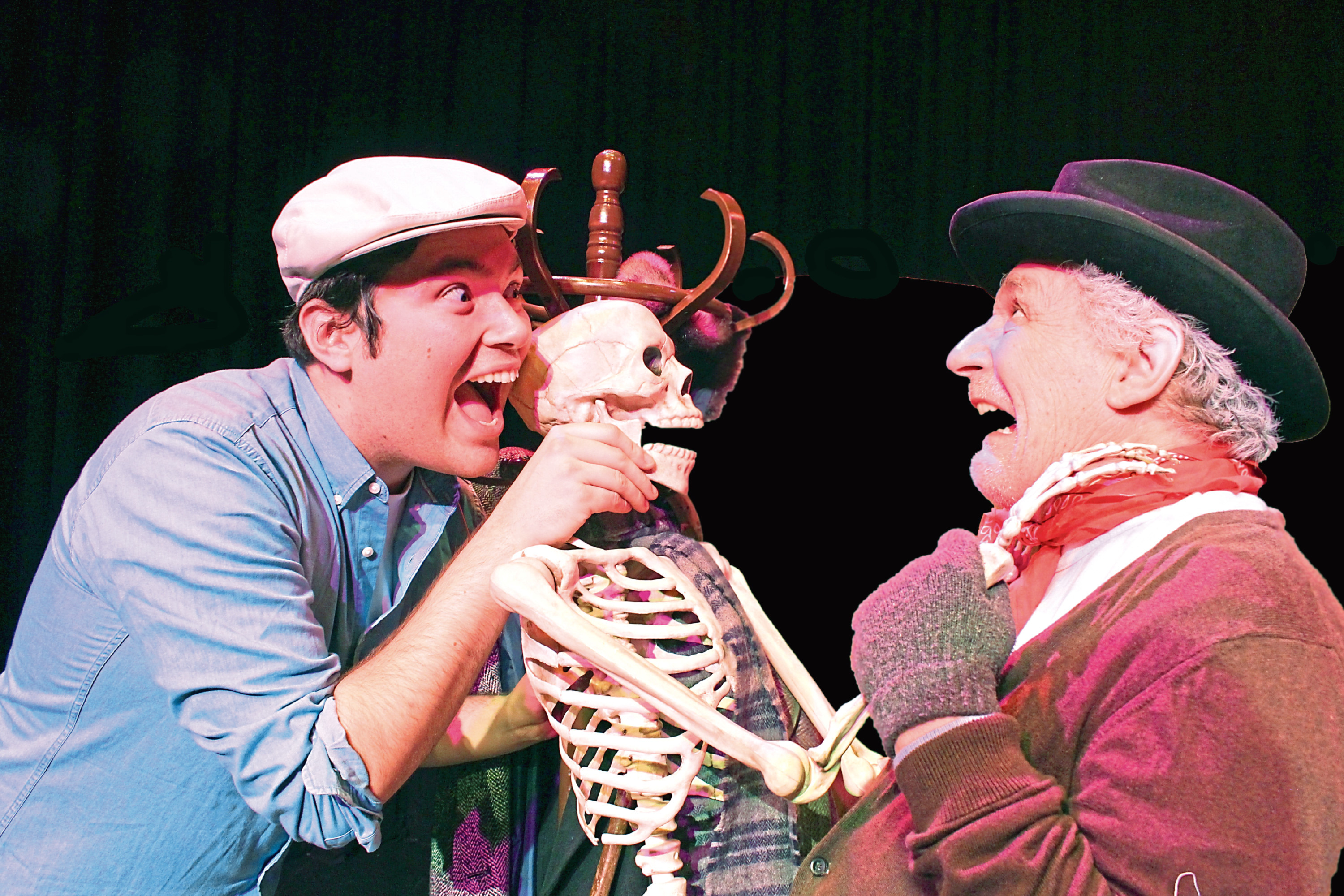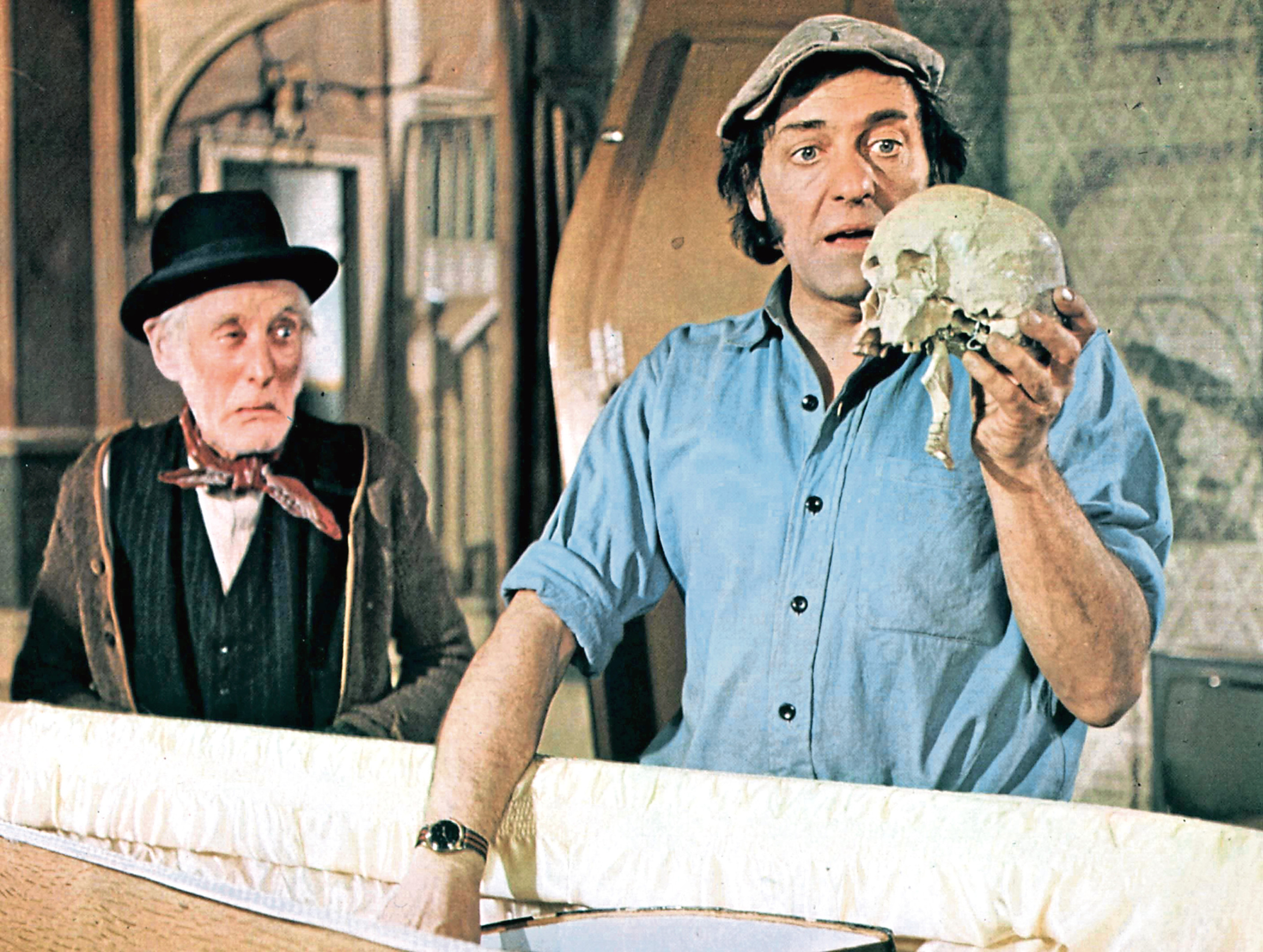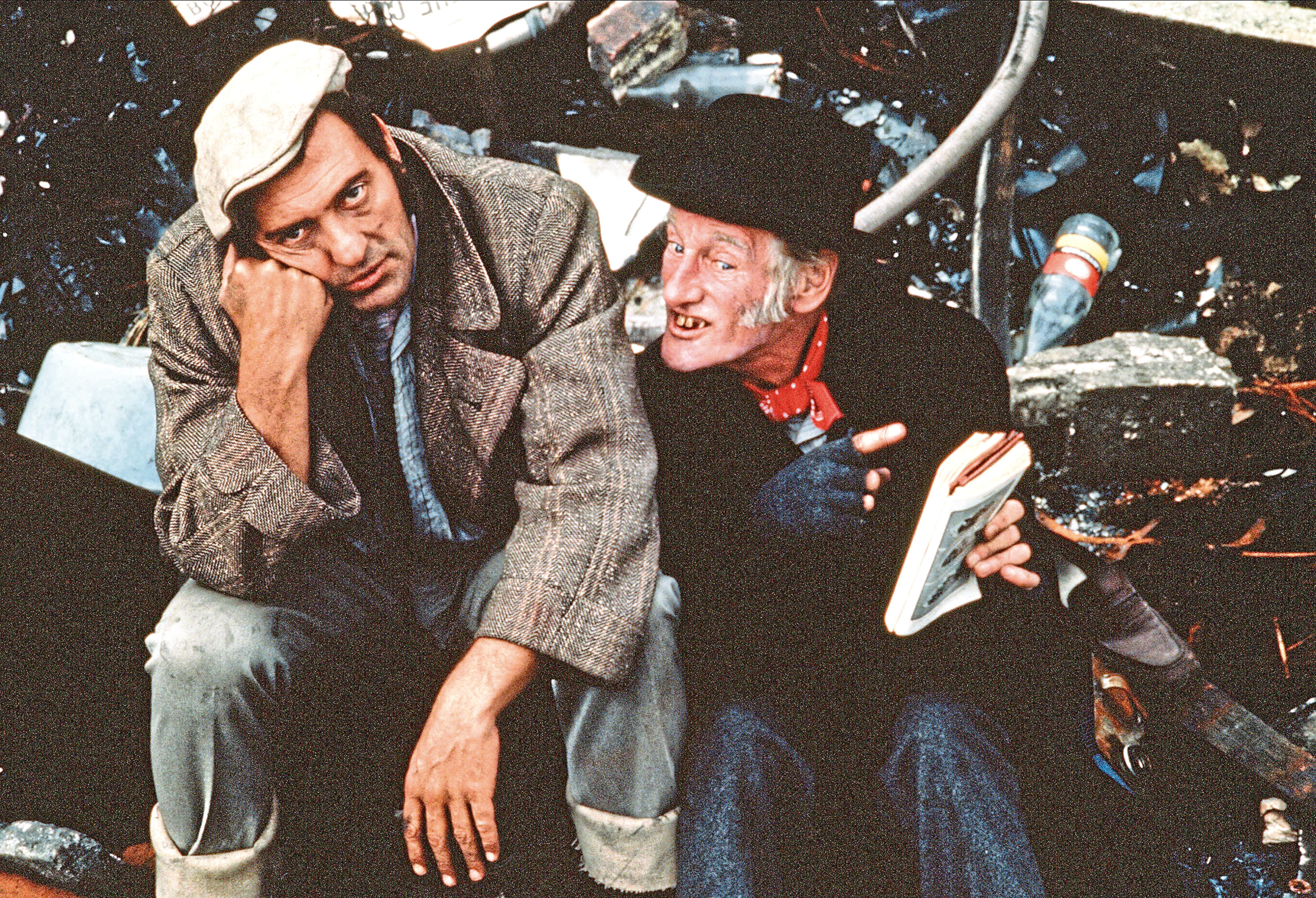
STEPTOE And Son is one of those happy accidents.
In 1962, comedy writing duo Ray Galton and Alan Simpson had been commissioned by the BBC to create 10 standalone stories for their Comedy Playhouse.
But by the fourth instalment a combination of writers’ block and spending the bulk of the budget on the first three episodes meant they had to pen a two-hander set in a single room.
Initially the characters were to be brothers but they decided that a father and son worked best, and the Beeb’s Head of Comedy was so impressed he commissioned the first of eight series set in what would become Oil Drum Lane.
Harold and Albert Steptoe became such an institution that John Hewer’s Hambledon Productions regularly stage their Steptoe And Son show in theatres, with writer and actor John channelling his inner Harry H. Corbett as ’Arold.
“There’s an awful lot in Steptoe And Son that is still relevant, and more so still funny,” says John.
“The only kind of archaic bit of the show which has now gone is the whole set-up of the rag-and-bone men.
“The writers picked an industry already in decline and used that to give them a reason to have this old, dilapidated house full of junk and decaying debris they couldn’t shift, and base the characters in this kind of horrible grotto to spark off each other.
“But while the rag ’n’ bone trade’s a backdrop that has gone by, thankfully they didn’t rely on that too much for the actual laughs, it’s more about something we can all buy into which is a father and son who have different attitudes and different ethics yet still are bound to each other because they love each other.
“And no matter how frustrating they are and how much they wind each other up, at the end of the day they are stuck in this closeted, claustrophobic little world and it is quite sad.
“Steptoe And Son is almost as tragic as it is comic, and I think that’s something we can all relate to as well but it was so groundbreaking to do that in the 60s when it first appeared.”
It’s nearly six decades since the familiar theme tune Old Ned was first heard but people are still tuning in to repeats and flocking to John’s show.
“It’s the writing that has made it stand the test of time, as well as the performances,” says John.
“The writing still comes across as very, very fresh and Galton and Simpson had that knack of getting hold of a very simple scenario, a father and son stuck in a room together, and somehow creating 57 episodes of unwavering quality from it.
“Some of the episodes were very broad and became farcical with bits of slapstick but some were very sad and heartbreaking.
“They had that whole scope going on and every week we tuned in to see if this was going to be the episode when Harold finally left the roost, when he finally just threw away his old dad to have his own life but he never did!
“But that’s why we tuned in, to see how the old man was going to get him to stay at home, that’s where the comedy came from.”
Unlike some sitcoms from a similar period, Steptoe didn’t rely on stereotypes or comedy we’d now see as racist or otherwise unpalatable.
“No,” says John. “There were a couple of lines here and there that the old man comes out with but it’s quite clear from how the episodes have been directed or how the writing lays it out that we are to laugh at him, not with him, for the kind of bigoted, misogynistic stuff he comes out with now and again.
“It’s like the catchphrase ‘You dirty old man’, people think Harry H. Corbett comes out with that in every episode but he doesn’t.
“We use it once in a full two-hour show and we picked the best episodes. They don’t do it whereas you look at something like Dad’s Army and Are You Being Served? and it’s a round of applause every time they trot out a catchphrase.
“But in Steptoe, the writers had a lot more to get across than that so they kept it up their sleeves and used it very sparingly, perhaps once a series, though perhaps they used it more in the latter episodes, understandably.”
Another reason for Steptoe’s longevity is that they cast actors as the key characters, not comedians who are often very much of their time and can date quite badly.
“Very true,” agrees John. “Galton and Simpson were very keen to do that because obviously they worked with Tony Hancock and I think they were trying to write a series for Frankie Howerd but he was having one of his down periods at that point and the BBC said, ‘He’s history, don’t waste your time with Frankie.’
“So they let them have carte blanche to write these standalone half-hours. People like Stanley Baxter and Michael Bentine were mentioned but they said, ‘Look, we want actors, particularly for this one’ and they suggested it to Harry and Wilfrid Brambell and to their amazement they both said yes straight away.”
It’s always struck me that Steptoe has similarities to Waiting For Godot, Samuel Beckett’s landmark play in which two idiots sit and bicker as they wait for a chap who never arrives.
“It totally is but it’s a lot funnier as well!” says John. “In the majority of the episodes it is just the two of them, maybe they’ll have a vicar pop round or every now or again one of Harold’s girlfriends, but the better scenes with the better writing are when it’s the two of them stuck in that horrible room.
“Harold’s got his stuffed fish and there’s the bear and the skeleton and the drinks cabinet, it’s a world we’ve all come to really know, and they’re there bickering, there’s tension going on.
“One of them is always rubbing up the other up the wrong way and you watch the sparks fly and enjoy the dialogue they come out with.
“I’m not old enough to remember when it was first broadcast but my parents were and they were Harold’s age so whenever they watched it with their parents they were fully behind Harold, thinking, ‘Come on, Harold, you can do this, that’s what you fought World War Two for, get your own family, your own industry and get out of there.’
“Now that they’re older they understand more that the vulnerability that the dad, Albert, has and that he genuinely needs his son to stay with him. You understand his point of view. He’s fought through God knows how many wars, he has a family, he has a property, he has a business and he’s now semi-retired and feels fully entitled to sit back in his bath and eat his pickled onions and watch the telly – nothing wrong with that at all.
“The viewing figures were incredible. In the top-10 TV ratings for 1973, the first five were sporting events, then there was Miss World and the Morecambe And Wise Christmas Special — no one’s going to argue with that — then the final three were all Steptoe episodes.
“That is incredible for a half an hour, probably billed as low-brow comedy, and nearly 60 years on still making people laugh.”
John Hewer will be appearing in further productions of Steptoe And Son in December. Visit www.hambledonproductions.com for more information.

Enjoy the convenience of having The Sunday Post delivered as a digital ePaper straight to your smartphone, tablet or computer.
Subscribe for only £5.49 a month and enjoy all the benefits of the printed paper as a digital replica.
Subscribe
